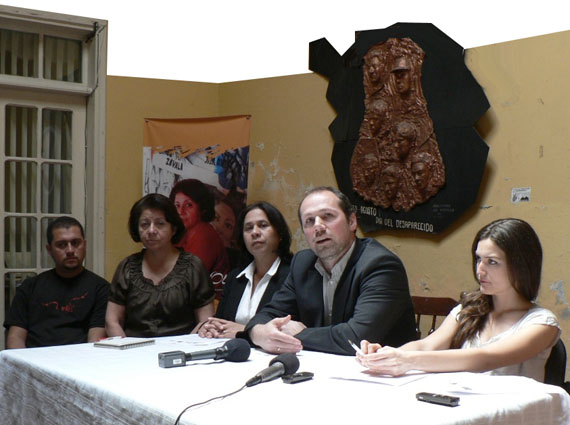|
The decision by
the German Investment and Development Bank (DEG) -a member of the Reconstruction
Credit Institute (KfW Bankengruppe - to cancel a US$ 20 million investment
granted to the company Corporación Dinant, owned by palm producer and landowner
Miguel Facussé Barjum, has set a significant precedent for the future of
thousands of peasant families in Bajo Aguán who live under a constant assault on
their rights. To gain insight on the context this decision was adopted in,
Sirel spoke with Martin
Wolpold-Bosien, FIAN International’s coordinator for Central America.
-How did DEG
come to this important decision of withdrawing the financing granted to
Corporación Dinant?
-FIAN
International launched an intense dialogue with DEG based on the
Report of the
International Human Rights Mission to Bajo Aguán.
At the same
time, the organization Rainforest Rescue (Rettet den Regenwald) launched
a letter-writing campaign aimed at DEG’s executive director.
These two
actions combined led to a close examination of the situation by the bank’s
authorities, who took the human rights abuses documented by the report very
seriously and acted accordingly.
We mustn’t forget that DEG is a
government-owned development bank and by definition it can only back sustainable
development projects that obviously must include respect for human rights.
The bank’s
termination of its agreement with Corporación Dinant is something we
consider normal in Germany.
|
In
Honduras, the business operators allegedly involved in human rights
abuses will have to realize that their aggression against peasant
families in Bajo Aguán will cost them very dearly in financial
terms. |
-In Honduras,
however, there’s a different perception of what “normal” is...
-In Honduras
it seems that businessman
Miguel Facussé
is untouchable and that explains in part his attitude and that of his security
guards in Bajo Aguán.
But Facussé has to obey national
laws like any other Honduran and he cannot continue violating international
human rights norms.
This decision
by DEG should open up a discussion on what constitutes “normal” in
Honduras.
-What happens
next?
-The business
operators allegedly involved in human rights abuses will have to realize that
their aggression against peasant families in Bajo Aguán will cost them
very dearly in financial terms.
We hope that
this first result of our efforts will have a preventive effect and stop further
violence against peasant communities.
Also, other international
financial agencies that have signed agreements with Corporación Dinant, such as
the World Bank’s IFC (International Financial Corporation) and the IABD
(Inter-American Development Bank), should take DEG’s decision into account, and
we hope they will revise their agreements.
-Through the
Honduran press, Corporación Dinant declared that a campaign is being waged
against the company and against Honduras grounded on baseless facts. What do you
think of that?
-He’s mistaken
in saying that, because the investigation conducted by the International
Mission in Bajo Aguán focused exclusively on human rights, based
on the Honduran government’s obligations under international law.
|
In
many countries, the expansion of African palm has put greater
pressure on land, and the sectors most affected by hunger around the
world are peasant families with no access to land. |
The report
contains very clear evidence of private companies involved in human rights
abuses. We also sent a copy of the Preliminary Report to Corporación Dinant
with the aim of including their observations in the final version. We received
no answer from the company.
-The
International Mission also observed that there is the current production model,
the human rights abuses, and the high poverty rates in Bajo Aguán are all very
closely related.
-There is an
obvious conflict between rural development models.
Single-crop agriculture - in this
case African palm production - is not a solution for combating hunger and
extreme poverty.
In many
countries, the expansion of African palm has put greater pressure on land, and
the sectors most affected by hunger around the world are peasant families with
no access to land.
Secure access to land and agrarian
reform are key elements for guaranteeing the right to food, and peasant families
have the right to fight for their food security.
-How important
is DEG’s decision for the peasant families of Bajo Aguán?
-There is
international awareness of what is happening in the area and the concern is
turning into concrete decisions by international actors that can help find a
solution to the conflict.
In this sense,
the International Mission will continue to insist that bilateral
cooperation agencies and multilateral banks review their financial cooperation
agreements.
In addition, we
will continue supporting Honduras’ human rights organizations, whose work in
defense of these communities is so vital.
 |